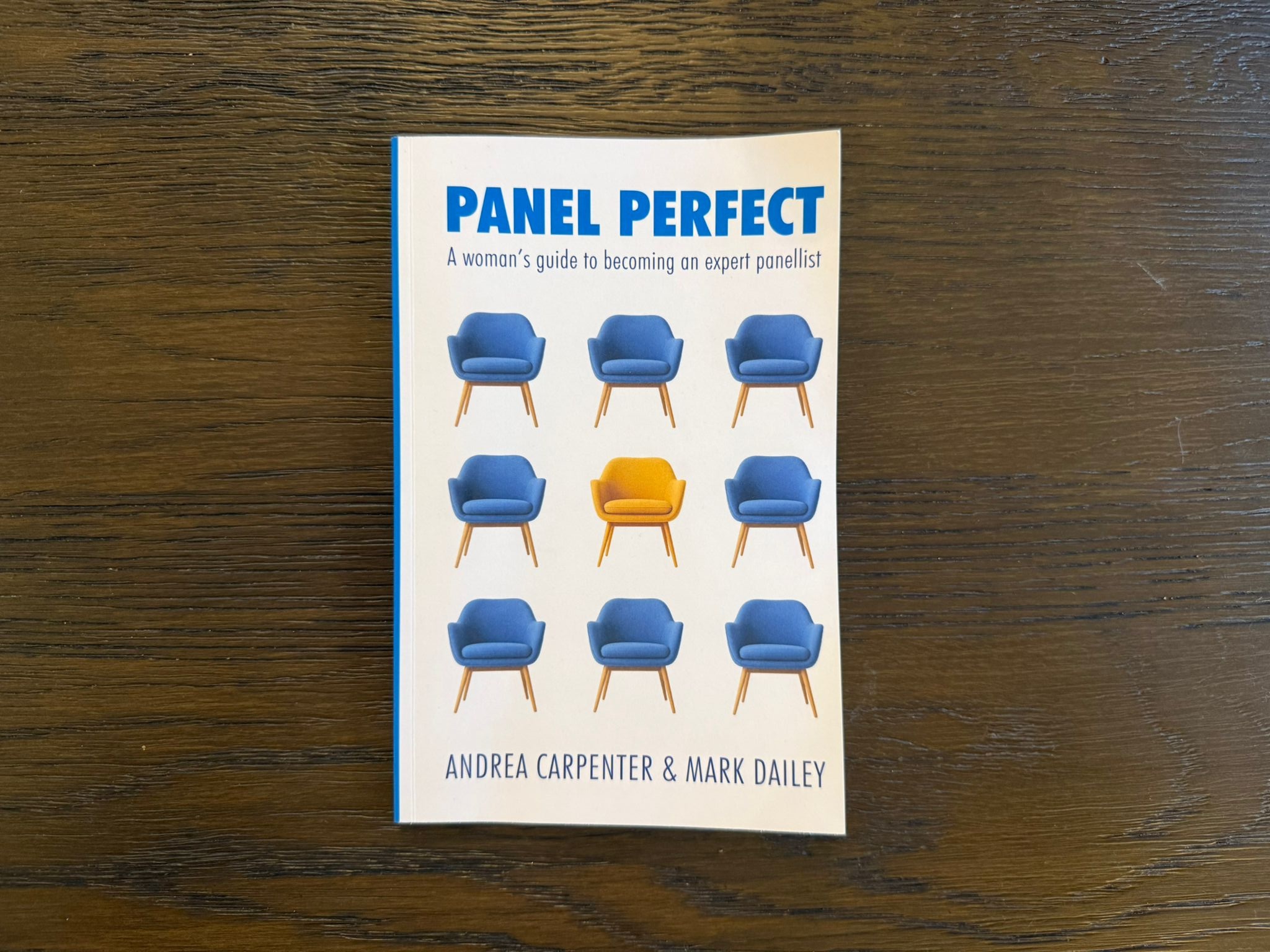How to be a good panellist: Three skills that matter from “Panel Perfect”

It would be dangerously ambitious to summarise 60 pages of tailored guidance for panel novices here.
So I won’t.
But if you are just getting started in your events journey, this book is a fantastic guide of what to consider, how to prepare, and what to expect.
If one of your goals for 2026 is to do more speaking, and you’re not sure where to start, let me suggest you start right here.
__
Panels look simple from the outside, but anyone who’s sat on one knows they can be a strange mix of pressure, performance and trying not to interrupt the person next to you. But being effective isn’t about being the most polished, often it’s about a few small, intentional habits that make the experience easier for you and more valuable for the audience.
Here are three that genuinely make a difference, drawing on practical guidance from Andrea Carpenter and Mark Dailey in 'Panel Perfect: A Woman’s Guide to Becoming an Expert Panellist.'
1. Start with a clear point, even if the question is vague
Most panel answers fall apart because the speaker starts talking before they know what they’re trying to say. Audiences feel that drift straight away.
A useful approach is to take half a beat and anchor yourself in one thing:
What’s the point I want to make?
Not the perfect point. Not the most impressive point. Just a point.
Once you have it, everything flows more naturally. Your examples, your tone, even your body language. It also stops the rambling, over-explaining spiral so many of us fall into when we’re nervous or trying too hard to be thorough.
2. Prepare just enough to feel steady, but not scripted
Women often get told to “stop overthinking” or “just be confident,” which is unhelpful when you’re about to speak in front of a room full of strangers.
A more realistic approach is what Panel Perfect hints at: do the kind of prep that makes you feel anchored.
That can look like:
- A quick call with the moderator to understand the flow
- Noting two or three points you’d like to weave in
- Having one example or story ready that brings your perspective to life
This level of prep gives you something to hold onto without locking you into rehearsed answers. It also makes you feel more in control, which naturally comes across as confidence.
3. Learn to handle questions you don’t want to
Every panellist eventually gets that question: too specific, too left-field, too confidential, or simply outside your expertise. What separates strong panellists from shaky ones isn’t the answer itself, it’s the way they manage it.
A calm redirection works wonders:
- “I can’t speak to that directly, but here’s what we’re seeing more broadly…”
- “That’s not one I can comment on, though what I can share is…”
It’s respectful, it keeps the conversation moving, and it protects your credibility.
Being effective doesn’t mean knowing everything, but it does mean handling the gaps with composure.
The thread that ties it all together
When you strip panels back to their essentials, being ‘good’ comes down to something much simpler than performance: For me, that’s clarity, steadiness, and a willingness to be useful rather than perfect.
Audiences don’t remember flawless answers. They remember the speakers who made sense, and told them something they didn’t know before.
___
Public speaking is a skill like any other. It can be practiced and improved. But knowing where to start can be overwhelming, and the first few opportunities a steep learning curve. If you want a quick read that will give you everything you could possibly know before you get started, consider this it.
Read the guide in full: “Panel Perfect - A woman’s guide to becoming an expert panellist”



